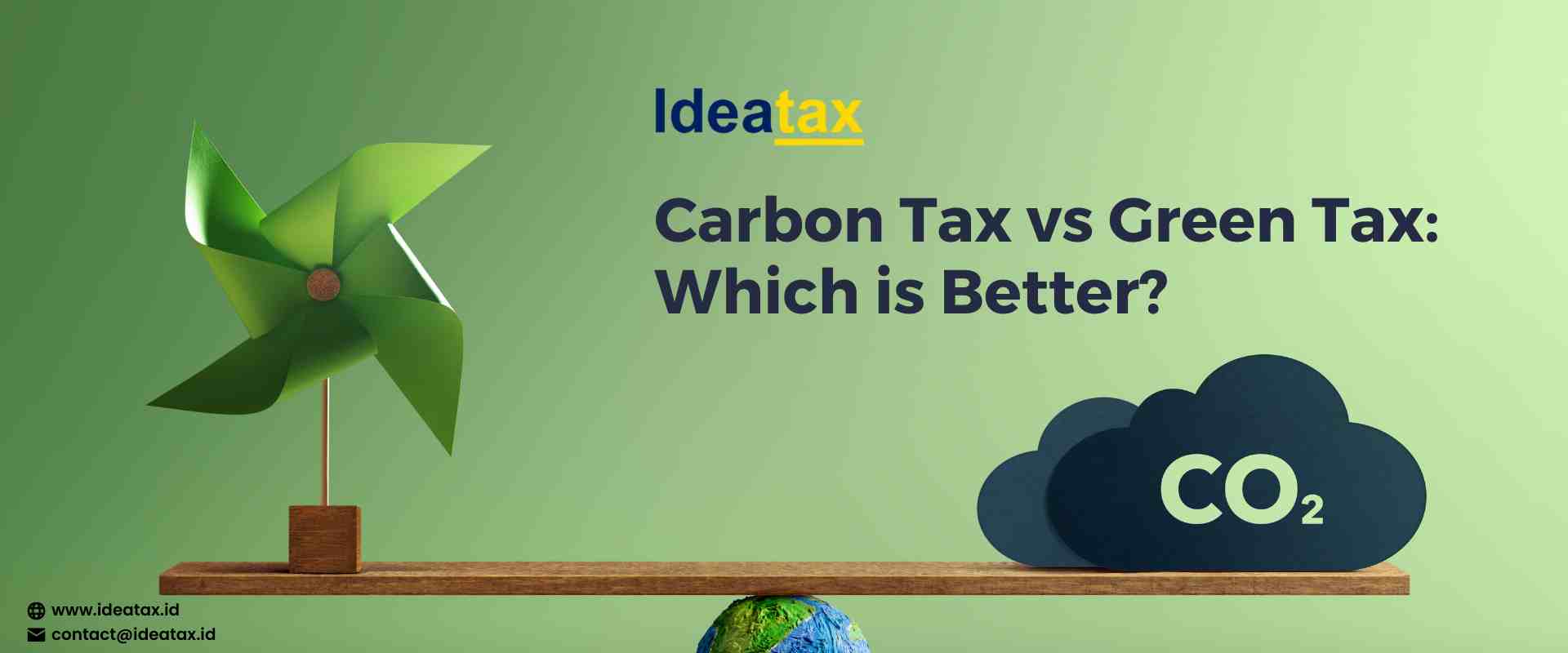Hello, is there anything we can help?

Jakarta, Ideatax -- It has been two years since the Harmonization of Tax Regulations Act was enacted. During that time, Indonesia has constitutionally recognized a carbon tax. Through Article 13 of the law, which was enacted during the pandemic, the Government regulates that the government can impose a carbon tax on carbon emissions that negatively impact the environment.
The HPP Law also regulates that carbon tax is payable on the purchase of carbon-containing goods or carbon-generating activities. Regarding the time of payable, the HPP Law regulates that carbon tax is payable at the time of purchase of carbon-containing goods or at the year-end period of activities that produce carbon emissions, or at other times regulated by government regulations.
With respect to the rate, the STLG Law regulates that the carbon tax rate is set higher or equal to the market price of carbon per CO2e or equivalent unit. However, in the event that the market price of carbon is lower than IDR 30 per CO2e, the carbon tax rate is set at IDR 30 per kilogram CO2e. Citing OECD data published by STASTITA, it is known that in April 2021, the highest carbon price was on the UK carbon exchange at EUR 95.95 per ton CO2e or IDR 1,573 per kilogram CO2e (Armstrong, 2021). This price is much higher than the carbon tax rate set by the Indonesian government at IDR 30 per kilogram of CO2e. Details of carbon prices in the world market can be seen in the following figure:
It should be noted that until now, there are no technical provisions governing carbon tax. This means that the HPP Law that regulates carbon tax cannot be implemented because there are no technical guidelines governing it. Head of BKF, Febrio Kacaribu, said that the Central government is preparing consistent and good derivative regulations related to carbon tax in accordance with the Harmonization of Tax Regulations (HPP) Law with Presidential Regulation (Perpres) Number 98 of 2021 concerning the Implementation of Carbon Economic Value.
Green Tax
OECD (2017) defines green tax or environment tax as a set of instruments used by the government to shape the relative price of goods or services. Furthermore, according to OECD (2017) Green tax has several characteristics such as a database (revenue, tax base, tax rates, exemptions, etc.) which is used as a basis for compiling environment-based taxes that can be broken down into several categories such as energy products, motor vehicles, water and air emissions, ozone quality reduction, waste management, water management, soil management, forests, and biodiversity.
Similar to the OECD, the European Union defines green tax as a tax on energy, transportation and natural resources (EU, 2023). Furthermore, the EU (2023) explains that green tax is a broad term aimed at realizing environmental policies in changing to cleaner energy. Green Tax also aims to support sustainable growth and serves as state treasury filler in the context of post-pandemic recovery (EU, 2023).
Conclusion
Based on the above, it can be seen that green tax refers to broader environmental impact mitigation activities which include taxes on carbon, transportation, environmental control, waste-management and so on while carbon tax refers more to taxing activities that cause excessive greenhouse gas emissions.
Carbon taxation cannot be applied on its own. Carbon tax needs to be supported by other sustainable policy instruments such as incentives for companies or taxpayers that implement innovations in reducing the use of carbon emissions. Incentives can also be provided in the form of a reduction in VAT or STLG on the purchase of goods that contain low carbon/emissions.
Providing incentives at the purchase price level will encourage consumers to look for alternative goods, which in turn increases competition among sellers in creating low-emission goods (Klemm, 2009).
References
Armstrong, M. (2021, November 21). How the World Puts a Price on Carbon. Retrieved from STATISTA: https://www.statista.com/chart/17095/highest-carbon-taxes-in-the-world/
Klemm, A. (2009). Causes, Banefits, and Risks of Business Tax Incentives. New York: IMF.
OECD. (2017, September 17). Environmental tax. Retrieved from OECD Data: https://data.oecd.org/envpolicy/environmental-tax.htm
Uni Eropa. (2023, September 19). Green Taxation – in support of a more sustainable future. Retrieved from European Commission: https://taxation-customs.ec.europa.eu/green-taxation-0_en

